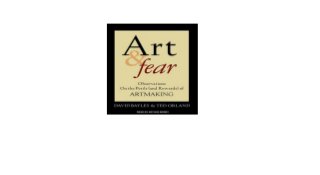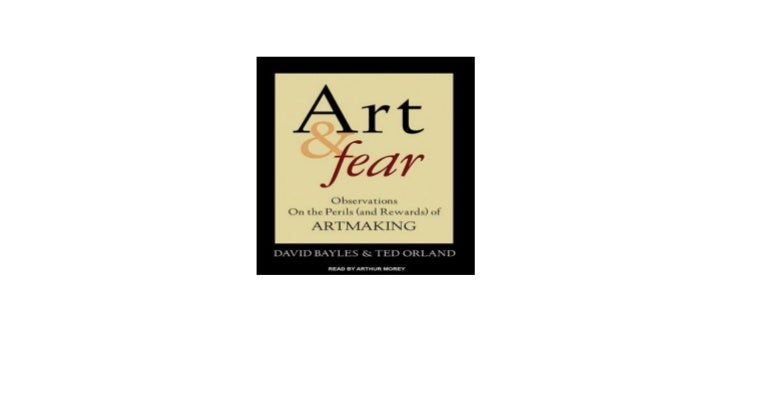

They remind us that if we teach, we also need to set aside time for pursuing our craft-a warning that applies equally to trainers who may not make the time to continue pursuing the learning opportunities that they need to be effective. We're working with the basics here, as we can see from chapter headings including "Fears About Yourself," "Fears About Others," and "Finding Your Work." The writers address the perils of trying to create work that pleases others rather than work that begins by pleasing ourselves-a theme of interest to anyone involved in creative endeavors, including any trainer-teacher-learner. 26) they write, and in the process do us all a favor by reminding us that creativity flourishes through what we learn from failure as much as from what we learn through success. "You make good work by (among other things) making lots of work that isn't very good, and gradually weeding out the parts that aren’t good, the parts that aren't yours" (p.


Years before Malcolm Gladwell built a wonderfully compelling case for the critical importance of practice and opportunity in "Outliers: The Story of Success," David Bayles and Ted Orland spent seven years producing their thin, lean, and absolutely inspiring work on how we can develop our own creative artistry through faith and perseverance.


 0 kommentar(er)
0 kommentar(er)
